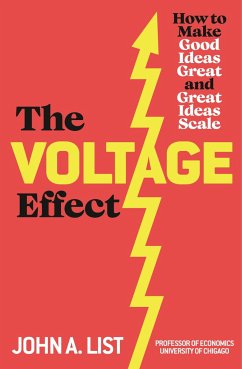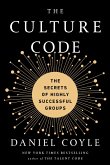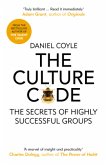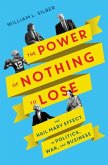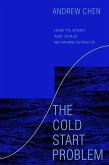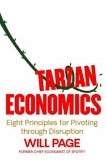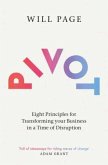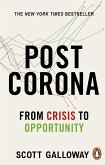'By far the best book I've ever read on the how and why of scaling. If you care about changing the world, or just want to make better decisions in your own life, The Voltage Effect is for you.' Angela Duckworth, CEO of Character Lab and New York Times bestselling author of Grit
________________
Why do some ideas make it big while others fail to take off? According to award-winning behavioural economist John List, the answer comes down to a single question: Can the idea scale?
Countless enterprises fall apart the moment they scale; their positive results fizzle, they lose valuable time and money, and the great electric charge of potential that drove them early on disappears. In short, they suffer a voltage drop. Yet success and failure are not about luck - in fact, there is a rhyme and reason as to why some ideas fail and why some make it big. Certain ideas are predictably scalable, while others are predictably destined for disaster.
In The Voltage Effect, University of Chicago economist John A. List explains how to identify the ideas that will be successful when scaled, and how to avoid those that won't. Drawing on his own original research, as well as fascinating examples from the realms of business, government, education, and public health, he details the five signature elements that cause voltage drops, and unpacks the four proven techniques for increasing positive results - or voltage gains - and scaling great ideas to their fullest potential.
By understanding the science of scaling, we can drive change in our schools, workplaces, communities, and society at large. Because a better world can only be built at scale.
________________
'One of the best economics books I have ever read - and an instant classic in behavioral economics.' Cass R. Sunstein, Robert Walmsley University Professor, Harvard University, and New York Times bestselling co-author of Nudge
'Thought-provoking and engaging. A must-read.' Daron Acemoglu, Institute Professor at MIT and co-author of Why Nations Fail and The Narrow Corridor.
________________
Why do some ideas make it big while others fail to take off? According to award-winning behavioural economist John List, the answer comes down to a single question: Can the idea scale?
Countless enterprises fall apart the moment they scale; their positive results fizzle, they lose valuable time and money, and the great electric charge of potential that drove them early on disappears. In short, they suffer a voltage drop. Yet success and failure are not about luck - in fact, there is a rhyme and reason as to why some ideas fail and why some make it big. Certain ideas are predictably scalable, while others are predictably destined for disaster.
In The Voltage Effect, University of Chicago economist John A. List explains how to identify the ideas that will be successful when scaled, and how to avoid those that won't. Drawing on his own original research, as well as fascinating examples from the realms of business, government, education, and public health, he details the five signature elements that cause voltage drops, and unpacks the four proven techniques for increasing positive results - or voltage gains - and scaling great ideas to their fullest potential.
By understanding the science of scaling, we can drive change in our schools, workplaces, communities, and society at large. Because a better world can only be built at scale.
________________
'One of the best economics books I have ever read - and an instant classic in behavioral economics.' Cass R. Sunstein, Robert Walmsley University Professor, Harvard University, and New York Times bestselling co-author of Nudge
'Thought-provoking and engaging. A must-read.' Daron Acemoglu, Institute Professor at MIT and co-author of Why Nations Fail and The Narrow Corridor.
Brilliant, practical, and grounded in the very latest research, this is by far the best book I've ever read on the how and why of scaling. If you care about changing the world, or just want to make better decisions in your own life, The Voltage Effect is for you. Angela Duckworth, Founder and CEO of Character Lab and New York Times bestselling author of Grit

